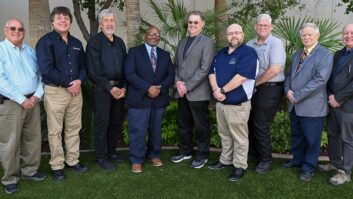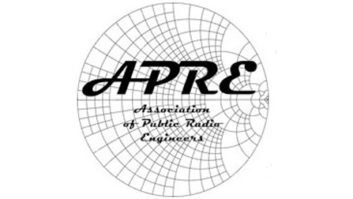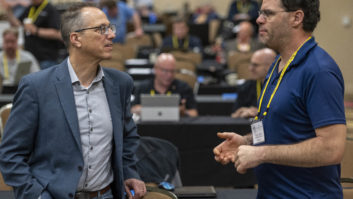
iStockphoto/totallyPic.com
WASHINGTON — Radio draws from a more local advertising pool than does TV, according to many radio owners. They’re questioning why the FCC wants to require radio stations to post public files to an online commission database, as television stations now must do.
Smaller stations say the requirement would be a financial and staff burden. Larger owners with experience uploading television online files cite problems with the commission’s system; they question whether the FCC’s information technology infrastructure could handle the uploading and management of so many documents.
The issue is heating up. The discussion coincides with the 2014 election cycle, though it’s unclear how fast the agency could implement any changes.
The commission asked for public input on a petition from three advocacy groups, Campaign Legal Center, Common Cause and the Sunlight Foundation; they had urged the agency to extend the online obligations to satellite and cable television to make media political advertising purchases more transparent to the public. The FCC itself then asked whether radio should be included, and if so, on what timeline.
Thirty-two initial comments, mostly from broadcasters, then were submitted to MB Docket 14-127. An additional three reply comments were filed by the early September deadline. What follows are excerpts capturing major themes.
EXTEND RULE TO RADIO
Campaign Legal Center, Common Cause and the Sunlight Foundation:
Statistica found that total spending on political advertising on radio in 2012 ranked third behind broadcast television and cable television. … Political advertising spending on radio grew from $552.5 million in 2008 to $819.2 million in 2012. In comparison, cable television political ad spending grew from $468 million to $938.8 million and broadcast television political ad spending grew from $4.3 billion to $5.6 billion. …
Radio provides a particularly attractive advertising platform for political campaigns. It reaches a high percentage of registered voters, including minorities. According to the Radio Advertising Bureau, radio reaches 90 percent of adults 18+ who have registered to vote, including 91 percent of registered African-Americans and 92 percent of registered Hispanics. … Moreover, radio ads are increasingly used by local and less well-known candidates and issue advocates because of the ads’ low cost. … Because political advertising on radio is playing an increasingly important role in educating the electorate, the public should have online access to the public and political files. …
In the same way that online disclosure of television public files provides “unquestionably substantial” public benefits, online disclosure of radio public files will accomplish the same goal. The burdens imposed by accessing the physical file are even higher with radio stations than with television stations. With more stations in each market, the public would have to visit many more stations to find the information they are looking for or to get a complete picture of political ad spending in a market.
American Public Media Group:
American Public Media Group is the parent entity of Minnesota Public Radio, Southern California Public Radio, American Public Media and Classical South Florida. …
We are … proud of our track record of transparency and openness to the public — including transparency around those that provide financial support to APMG. … [W]e support the FCC’s proposed rule to require that all TV and radio stations post their public and political files to the FCC’s online database. Enabling the public to access this information of media organizations would promote more public trust in media — something that is sorely lacking today.
A handful of filings contained brief supportive statements from commenters who supplied only their names, like this one from Janice Dowling:
I am very much in favor of increasing public access to contract/air purchase information involving political ads.
NO TO RULE CHANGE FOR RADIO
LeSEA Broadcasting Corp.:
LeSEA Broadcasting Corporation is a nonprofit corporation that, with its subsidiaries, is the licensee of three full-power commercial FM radio stations, eight full-power commercial televisions stations and several low-power televisions stations. As a radio licensee already experienced with compliance of the commission’s online public inspection file rules for commercial television stations, LeSEA is one of a small number of radio licensees that knows the problems and pitfalls of online public files. …
Specifically, in response to a Petition for Rulemaking filed by national advocacy groups seeking, ostensibly, easier access to information about who is paying for political advertising on cable and satellite systems, the commission simply lumped in radio, asking whether they too should upload their public files onto the FCC’s system. …
LeSEA questions the real purpose of having online public files on the commission’s website. Who, in fact, does such a requirement benefit? Based on the limits of the technology, broadcast radio listeners are nearly all local, they do not need the FCC’s website to find information about their local stations. …
It therefore appears that the real purpose for creating a public file database is to benefit non-local national advocacy groups and individuals who do not listen to and are not connected to a radio station’s local service area in any way. Online public files make it easier for those national advocacy groups or individuals to review public files in order to file complaints about any rules violation. … Even meritless complaints delay, and sometimes even prevent, application processing at the FCC.
Blount Masscom Inc.:
Blount Masscom Inc. is the licensee of seven full-power radio stations (five AM and two FM) stations providing coverage throughout New England. …
Radio online public files are not a foregone conclusion, and the issue should not be an afterthought to a narrow proceeding focused on multichannel video programming distributors.
Radio does not need an online public file requirement, and no rulemaking should be initiated to consider one. …
Transitioning the public file online, 24/7 opens the station to criticism, inquiries and complaints by individuals or groups anywhere in the world who never listen to the station, do not reside in and have no connection to the communities the station serves, but who may have or confect an axe to grind about station ownership, programming, affiliation, format or a slew of other issues.
Radio stations already comply with an ever-growing and -changing set of FCC regulations. More regulation is not the answer. Blount’s AM daytime-only stations are struggling to survive, as they await a relaxation of the FCC’s rules as part of a slow-moving AM revitalization proceeding.
David Thomas:
REF would like [to] state that we believe that the FCC should be cautious in asking us (radio stations, NCE and commercial) to adopt the same policies that have been instituted for television stations. …
[W]e already provide a public file, completely accessible to the public during business hours. We feel this is the intended way that this operation should work. Otherwise, by providing the same content on a completely open scale … you would be opening the door for people to harass stations.
Richard A. Bouchard, certified emergency manager. He’s also the business manager at Bouchard Broadcasting in Woonsocket, R.I. and a planning chief for FEMA according to his LinkedIn profile, but filed comments as an individual.:
Our public file is located a filing cabinet in our front lobby, clearly marked. It is available for public inspection to anyone coming into our radio station. We do not think that foundations who are advocating for this docket are interested in our community of service, especially when their address is Washington, D.C. The only political advertising of note is local elections and an occasional state office advertising contract, certainly of no interest to D.C.-based lobbies!
Therefore, we respectfully request the FCC to continue to require stations such as ours, especially AM stations, to maintain a local public file, so that people who are truly interested in our radio station and people in our listening area can come to the station and see what is in the file, but to dismiss the idea of online public files for radio.
A PHASED-IN APPROACH?
National Association of Broadcasters:
As of June 30, 2014, there were 15,425 licensed AM, FM commercial and FM educational stations. This is over seven-fold the number of full-power and Class A television stations that already have placed their public inspection files online. Thus, the sheer number of radio and television stations, along with cable and DBS, could place a strain on the commission’s existing database, particularly during high volume filing times. …
Indeed, during peak political seasons, such as the upcoming fall mid-term election, many radio and television stations are taking advertising orders (and modifying existing orders) on a daily basis until the Nov. 4 election. For the past two years, television broadcasters have faced congestion bandwidth in uploading files during peak periods. For this reason we urge the commission to (1) consider increasing its online capacity to accommodate the significant increase in network traffic; and (2) consider ways to stagger filings as well as utilize a phase-in approach for broadcast radio stations … to relieve network congestion.
Any possible Notice of Proposed Rulemaking should also consider that among the 15,425 licensed full-power radio stations, the level of station staffing and access to the necessary resources to manage and maintain an online public file varies dramatically from station to station, market to market. Differences include, but are not limited to: number of employees; whether a station has automated its advertising traffic services; whether it has in-house computing resources; whether the station has in-house broadband capacity; and, importantly, whether the station facility is located in an area that even has Internet access. …
The commission should seek comment on a … phased-in approach for the public file generally, and political file particularly, to allow small- and medium-market radio stations, as well as smaller radio station groups and single-owner stations, additional time to transition.
Missouri Broadcasters Association and the California Broadcasters Association:
The Associations’ [television] members’ experience with online public files so far has not been as easy as had been hoped. The problems will be significantly greater if extended to the far more numerous and smaller-staffed radio industry. Support hosting services that could lighten the burden have not been able to launch due to problems with the FCC’s own API-based online public file system. …
As envisioned by the NAB and the FCC, a hosting service would better enable broadcasters to devote their human resources to public interest activities, including broadcast programming. But problems arose. … [N]ecessary functions still do not work, due to two remaining bugs in the FCC API that have been a problem for nearly two years. Many small television stations that had to go online this past July had planned to reduce their staff burden … but were unable to do so, and had to retool their compliance strategy. …
[W]e take notice of the points made in a contemporaneous filing with other state broadcaster associations that questions whether the commission’s online public file database is capable of smoothly handling the uploading of what would be tens of millions of pages of new documents onto its online database. Granted, the commission has worked to make its system more reliable, but it has recognized its own vulnerability by requiring that broadcasters maintain their own separate backup of the political file in the event that the commission’s system breaks down. …
In sum, extending the online public file requirements to radio is vastly premature, at least at this time.
Joint comments of local and regional small radio broadcasters:
Local Girls and Boys Broadcasting Corporation, MBC Grand Broadcasting Inc., North County Communications, LLC, Texas Public Radio and United Ministries (collectively, the “Local and Regional Small Radio Broadcasters”) … are small independently owned radio station operators. …
Despite all the compelling reasons that the commission should, in a separate rulemaking proceeding, postpone consideration of any expansion of online public files to any radio station until after the next election cycle, if the commission should decide to prematurely drag radio into a proceeding that is more properly focused on cable and DBS operators, it should ensure that the expansion does not result in undue regulatory burdens on small radio stations.
The commission should provide adequate notice, of at least a year, to radio stations before any online requirements become mandatory. With at least a year’s notice, stations could incrementally align their budgets for the increased costs that will be associated with online public files. …
In any event, the commission should also announce that it will provide radio broadcasters with a waiver of any online public file requirements upon a showing that maintaining an online public file would impose an unreasonable burden on a station due either to undue economic hardship or as a result of technical impediments.
50 State Broadcasters Associations:
Given the quantum difference between, on the one hand, having 1,800 television stations upload the contents of their main studio-based public inspection files onto the commission’s online public file database, and, on the other hand, having more than 15,000 radio stations do so, the question asks itself: Will the commission’s online public file database be capable of smoothly handling the uploading of what would be millions of pages of new documents onto its online database, on top of the ongoing filings by television stations and the pay-TV providers? We recognize that the commission has continued to take steps generally to make its systems more resilient in response to technical failures or when its systems are simply overwhelmed by the number of filings in a particular time frame, but such technical obstacles continue to be inherent in the commission’s aging filing systems. …
Accordingly, before commencing a Notice of Proposed Rulemaking regarding an online radio public inspection file requirement, the state associations encourage the FCC to … expend the necessary resources to beef up its filing systems to minimize technical problems for the massive influx of documents that would be involved. … [T]he FCC may want to adopt broader filing windows to at least reduce the number of filings flowing through the electronic front door of the commission on any one day.
HELP AM FIRST, OR MAKE CHANGE VOLUNTARY
Entertainment Media Trust:
It is unclear why there appears to be a greater urgency is about implementing an online filing system for radio public files, which would only further burden already struggling radio broadcasters, versus addressing the very real problems encountered by radio broadcasters, in particular AM broadcasters, that the Revitalization NPRM proposes to address. It is respectfully submitted that the commission should first look to assist radio station licensees to secure better economic footing through proceedings like the Revitalization NPRM and ensure a robust and stable radio broadcasting environment before imposing new procedural obligations on broadcasters who are ill-equipped both technically and financially to meet these additional obligations. …
Should the commission determine that it is technically and financially feasible for it to host radio stations’ public files online in the same manner as television stations, then such a provision should be either be voluntary or should provide for exemption by small broadcasters, in the similar manner as other rules have exemptions for such small broadcasters.
EXEMPT NCE STATIONS,
PROTECT DONOR INFO
Educational Media Foundation:
While it has been EMF’s experience that the public file of its stations are rarely if ever accessed, and thus there does not appear to be a great public demand for the public file of radio stations to be placed online, if rules are in fact adopted for broadcast radio licensees regarding online public file obligations, these rules need to be phased in over time so that stations with the fewest resources to comply with such rules be given the longest period in which to establish their compliance. In light of the recognized financial limitations of noncommercial broadcasters, NCEs should be the last stations required to maintain online files. …
In addition, the FCC must recognize the unique information provided in the public file of NCE stations and, just as it did when the obligations were adopted for television broadcasters, it should craft exemptions to the online public file requirements for noncommercial stations where such obligations could impede on the privacy of supporters of noncommercial broadcasting. The rules require that NCE stations place in their public file lists of donors who provide support to particular programs. Just as those who submit letters to the public inspection file of television stations may not expect that their names be made available on the Internet, donors to specific programs on NCE stations may not expect that the fact of their donations will be available to anyone anywhere in the world with an Internet connection.
Native Public Media:
If the commission should decide to hastily drag radio stations into a proceeding that is more properly focused on cable and DBS operators, the commission should exempt NCE radio stations from online public file requirements on grounds that the burden on the often limited human and technical resources available to NCE radio stations far outweigh any resulting public benefit.
Although the petition argues eloquently in favor of the public benefits that come from political advertising transparency, these benefits are entirely inapplicable to NCE radio stations because they are prohibited from selling political advertising. Consequently, requiring online public file obligations for NCE radio stations would not advance the goal of the petition. An NCE station’s political files would not contain any information about political spending or political advertising rates.
What do you think? Email[email protected]with Letter to the Editor in the subject field.










